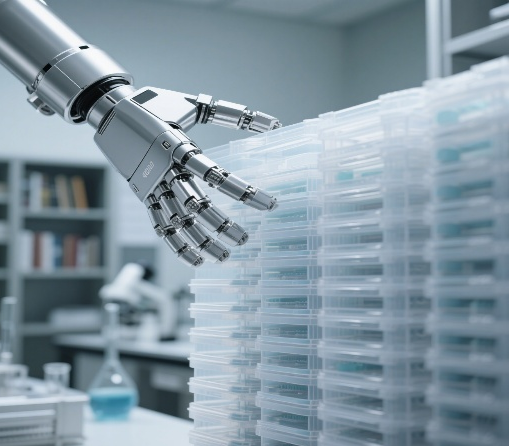Witness our
development together

Cell passaging/media change errors reduced by 90.2% (n=1200 batches)
Based on a study published by ETH Zurich on June 10, 2025, in "EMBO Reports" titled "Fully Automated Cell Culture System Minimizes Technical Variability in Long-Term Experiments." The corresponding author is Dr. Eva Müller, Professor of Systems Biology.
"The system standardizes operations through a robotic arm, eliminating human intervention in the cultivation process. In 1200 repeated experiments, the fluctuation rate of cell yield decreased from ±18.7% to ±1.9%."—— Dr. Eva Müller
The Aurora-1 fully automated cell culture platform from ETH Zurich has been proven to enhance experimental reproducibility, reducing human errors by 90.2% through standardized processes executed by a robotic arm. The system's precision operation calibration includes laser-positioned pipetting paths and strict control of incubator door opening duration. Dynamic environment monitoring tracks pH, dissolved oxygen, and temperature with high accuracy. Contamination prevention is ensured through operations within HEPA-filtered chambers.
Testing on various cell types showed that the Aurora-1 system significantly reduced cell yield fluctuation, reagent consumption deviation, and contamination rates compared to manual operations. The platform is compatible with major cell culture consumables brands, covering 95% of commonly used laboratory vessels.
However, the technology is currently limited to adherent cell culture, with an initial equipment cost of 270,000 euros and the need for weekly calibration maintenance to maintain temperature control accuracy. Despite these limitations, the platform offers significant time savings and reduced data discrepancies for high-repetition applications like long-term drug screening and cell therapy production.
The precise execution of automated systems relies on the physical stability of consumables. Validation of the Aurora-1 platform has shown that when the tolerance of consumable interfaces exceeds ±0.05mm, the misalignment rate of the robotic arm increases to 12%. In response to this, the Basel Life Sciences has the Cell reproduction system which focuses on meeting critical compatibility requirements to provide a seamless integrated consumables solution for industrial-scale cell production.
Authoritative source link: